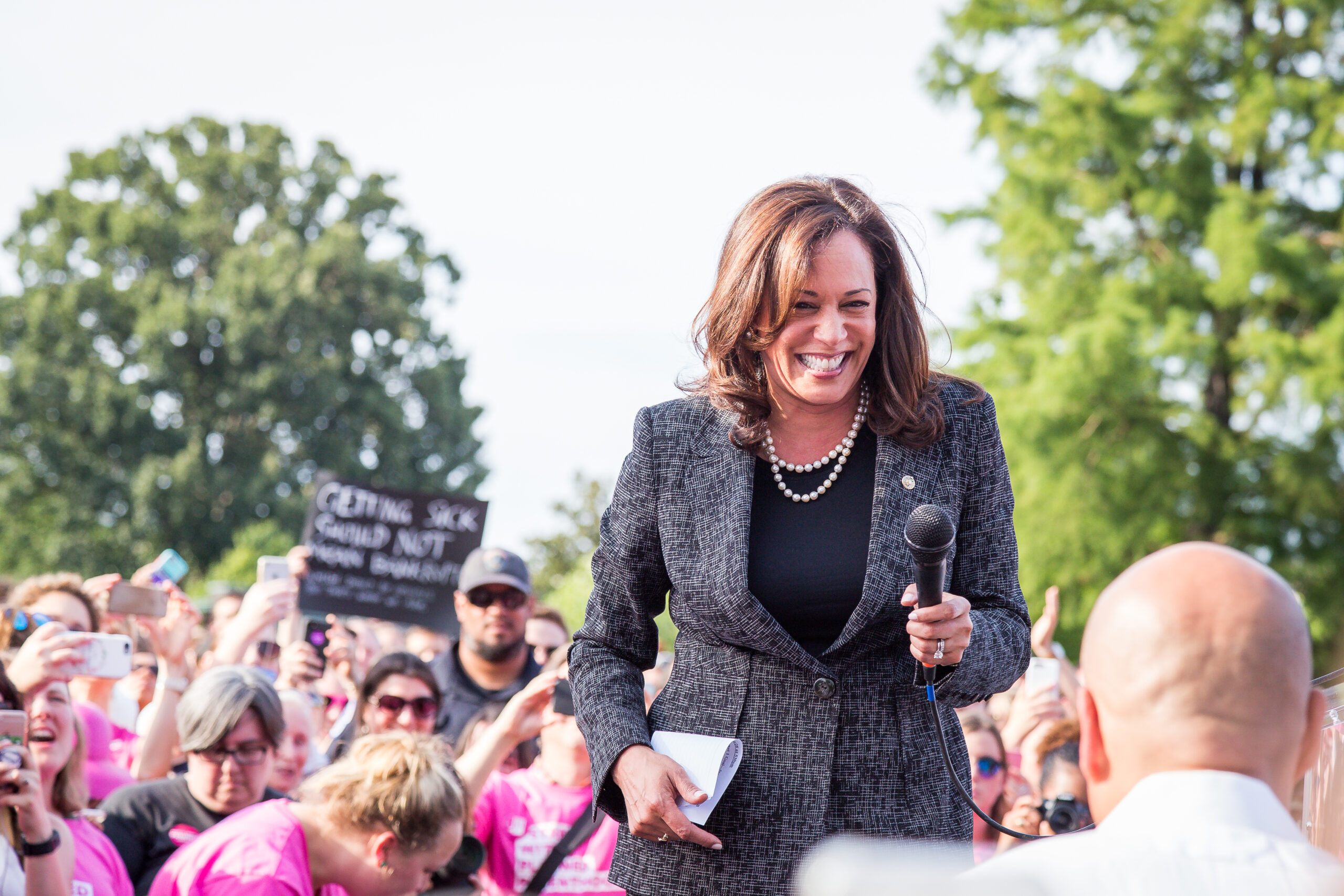CNN released a poll on Tuesday showing a notable increase in support among likely Democratic voters for California Senator Kamala Harris in her bid to be the party’s 2020 presidential nominee. Harris has tripled her support since December of last year, rising from 4% to 12%, and now stands in third place among a field of over a dozen contenders for the 2020 Democratic nomination, behind former Vice President Joe Biden (28%) and Vermont Senator Bernie Sanders (20%).
Sanders has declared his candidacy, while Biden is still mulling a bid.
The one other contender to reach double digits was Beto O’Rourke (11%), the former Texas U.S. Representative who threw his hat in the ring last Thursday.
The growth in Harris’ support is especially remarkable when compared to the rate of growth that her rivals saw in the same period. Bernie Sanders increased his support by 6% and O’Rourke only managed a 2% increase (although his just-launched campaign has had less time to build steam than other candidates).
Meanwhile, the would-be front-runner Joe Biden (who has hinted he might run, but hasn’t jumped in) has actually dropped two points since December.
Breaking down the numbers also shows positive signs for Harris.
The Democratic Party’s base has become increasingly diverse, female and left-leaning in recent years, and the biggest jumps in support for the California Senator came from women (+9), liberals (+10), and racial minorities (+10).
As a woman of color from one of the nation’s most reliably progressive states (and also its largest state), Harris is perhaps better positioned to connect with Democratic voters than any of her main rivals – all of whom are white men.
That being said, Senator Harris has a long uphill climb ahead of her if she wants to catch up with Sanders and Biden, men who have been in the public eye for years and have spent that time building name recognition and loyal followings.

Mobilus In Mobili, reproduced under a Creative Commons license)
Looking beyond the primaries, the CNN poll (conducted by SSRS) shows promising signs for whoever becomes the Democratic challenger to Donald Trump.
The percentage of those who have a favorable opinion of the President has hovered around 40% for his entire presidency, while his unfavorable numbers have wavered anywhere between 50% and 61%. By comparison, Barack Obama’s unfavorable number never exceeded 51% for his entire presidency. Trump is a ferociously disliked man: 59% do not think he cares about them, 62% think he is dishonest, 63% think he is divisive, and 60% are ashamed that he is the President.
There’s more: According to this latest poll, 64% of respondents were either “extremely enthusiastic” or “very enthusiastic” about voting in 2020 – the highest rate since 2004, when pollsters began asking this question.
Historically, high voter enthusiasm and turnout have aided Democrats; the legendary conservative leader Paul Weyrich famously quipped that Republican Party’s “leverage in the elections quite candidly goes up as the voting population goes down!”
Last year’s midterms showed that Democrats do better when participation is broader, with record-breaking turnout handing control of the House of Representatives to the Democrats despite many districts being gerrymandered.
While this is only one poll, Democrats can take comfort from its findings: Donald Trump is very vulnerable, the American people are enthusiastic about participating in 2020, and the contest for the Democratic nomination (which features a wide and diverse field) will be an unparalleled partybuilding opportunity.

